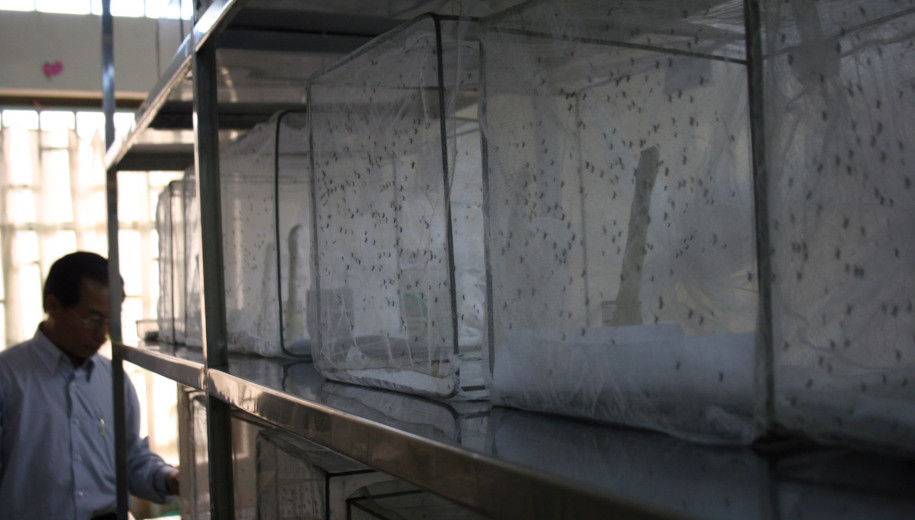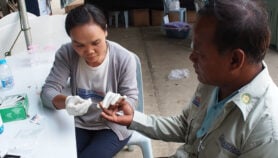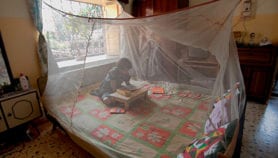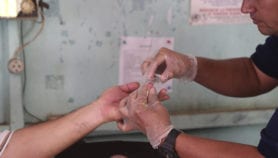13/08/21
Genetic tracking – new tool against malaria parasites

By: Sanjeet Bagcchi
Send to a friend
The details you provide on this page will not be used to send unsolicited email, and will not be sold to a 3rd party. See privacy policy.
[NEW DELHI] A team of international researchers has developed a genetic surveillance method to track changes in the drug resistance of malaria parasites and determine the most effective drugs that could be used for treatment in a given community.
Researchers from various countries, including Cambodia, India, Laos, Myanmar, Vietnam, UK and the US, published the details of their project, called GenRe-Mekong, in eLife on 10 August. Although focused on South-East Asia, the project provides a rich open data resource that can benefit the entire malaria community, estimated by WHO at 229 million people in 2019.
By providing detailed knowledge about drug resistance at a local level and facilitating data sharing at a regional level, GenRe-Mekong enables cross-border resistance monitoring and provides valuable insights to public health authorities. It is also far cheaper than clinical studies as it involves nothing more than a drop of blood taken on a paper strip.
The study authors said that gene-related monitoring of malaria parasite by GenRe-Mekong have already been used by authorities in Vietnam to review their “national drug policy” and change drugs used for the treatment of malaria in four provinces of the country.
“Drug resistance undermines malaria elimination efforts in multiple ways: it causes treatment failures, it increases transmission from [drug] resistant parasites, and it can spread, reducing treatment options globally,” says Olivo Miotto, corresponding author of the study and an associate professor at the Nuffield Department of Medicine, Oxford University, UK.
“It is essential that national malaria control programmes have timely and detailed information about drug resistance in their territory, so they can adjust intervention strategies to prevent its spread,” Miotto says.
“It is essential that national malaria control programmes have timely and detailed information about drug resistance in their territory, so they can adjust intervention strategies to prevent its spread”
Olivo Miotto, Oxford University
By monitoring gene-related changes in the malaria parasite, GenRe-Mekong can track drug-resistant parasites and regions where malaria shows resistance to common drugs.
The researchers carried out their study in the Greater Mekong sub-region including Cambodia, Laos, Myanmar, Thailand and Vietnam. This area is known for the emergence of drug-resistant strains of the malaria parasite, such as Plasmodium falciparum which causes the most serious form of malaria, and their spread to neighbouring countries such as Bangladesh and India.
“Although the major burden of malaria occurs in sub-Saharan Africa, drug-resistant variants have typically spread from a site of origin in South-East Asia, and the ongoing threat could have disastrous consequences across the world,” comments Andrew Hammond, Sir Henry Wellcome Research Fellow at the Johns Hopkins Malaria Research Institute, Baltimore, US.
The GenRe-Mekong platform analysed 9,623 blood samples of patients with symptoms of malaria from countries in the Greater Mekong sub-region, as well as from Bangladesh, Congo and India.
Miotto tells SciDev.Net: “The GenRe-Mekong project makes available to national malaria control programmes a technological platform that can monitor a broad set of genetic markers from the analysis of drops of blood taken on a strip of filter paper, which can be collected even in the simplest healthcare setting.” The genetic data can predict whether malaria parasites will be resistant to different anti-malarial drugs and delivers simple prevalence maps.
“Now that we have the technology, we need to push for this type of genetic surveillance throughout the malaria-endemic world,” Hammond tells SciDev.Net. According to him, low-cost genetic screening could have a huge impact on malaria control in the developing world. “But, if we are to reach malaria elimination, it will need a far greater commitment from the developed world.”
Agnimita Giri Sarkar, a paediatrician at the Institute of Child Health, Kolkata, India, tells SciDev.Net that malaria control programmes in countries like India have been affected by drug resistance in malaria parasites, and by the COVID-19 pandemic in recent times.
Genetic information about the parasite can play an important role in planning a successful malaria vaccine development programme, says Sarkar.
This piece was produced by SciDev.Net’s Asia & Pacific desk.















